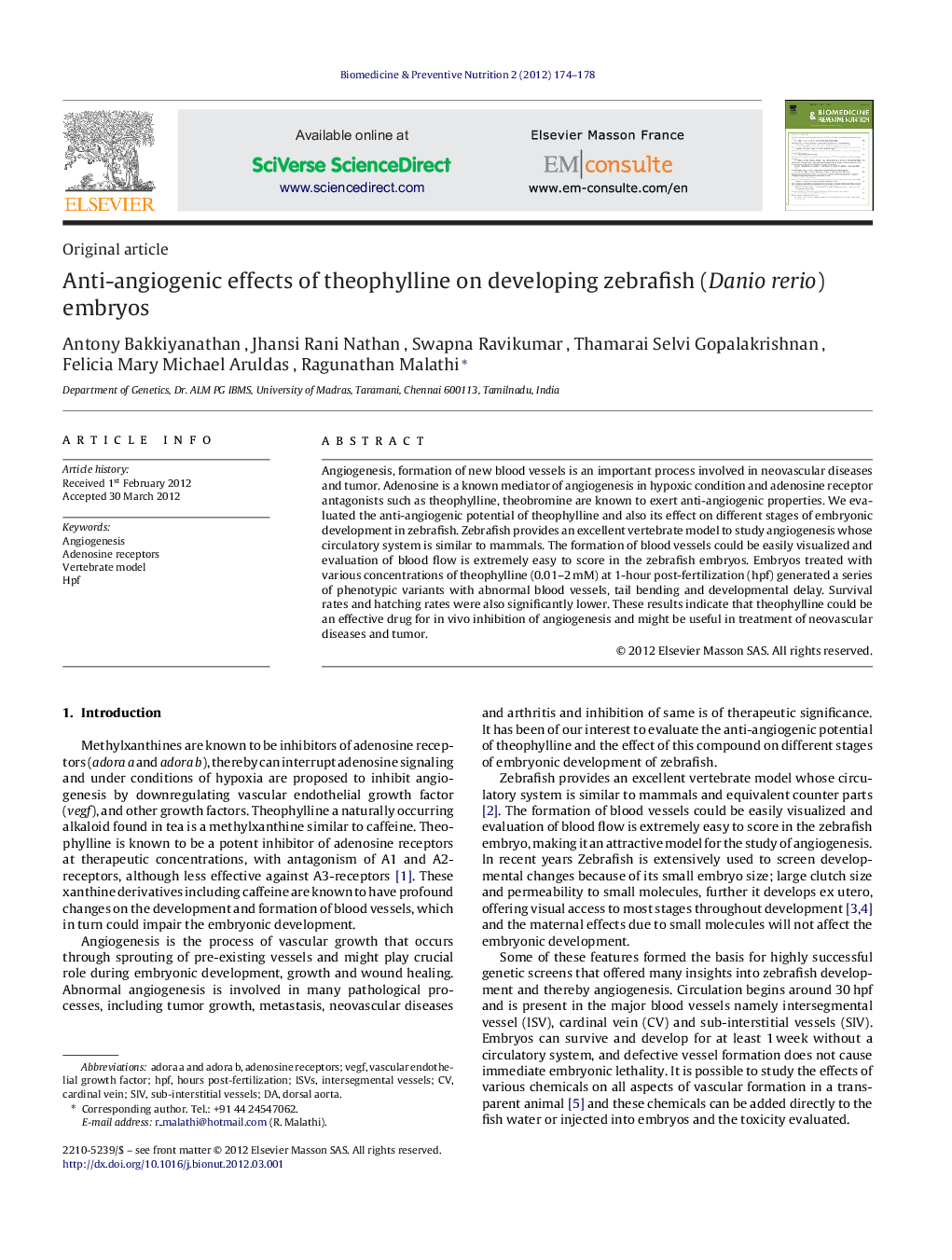| Article ID | Journal | Published Year | Pages | File Type |
|---|---|---|---|---|
| 2683675 | Biomedicine & Preventive Nutrition | 2012 | 5 Pages |
Angiogenesis, formation of new blood vessels is an important process involved in neovascular diseases and tumor. Adenosine is a known mediator of angiogenesis in hypoxic condition and adenosine receptor antagonists such as theophylline, theobromine are known to exert anti-angiogenic properties. We evaluated the anti-angiogenic potential of theophylline and also its effect on different stages of embryonic development in zebrafish. Zebrafish provides an excellent vertebrate model to study angiogenesis whose circulatory system is similar to mammals. The formation of blood vessels could be easily visualized and evaluation of blood flow is extremely easy to score in the zebrafish embryos. Embryos treated with various concentrations of theophylline (0.01–2 mM) at 1-hour post-fertilization (hpf) generated a series of phenotypic variants with abnormal blood vessels, tail bending and developmental delay. Survival rates and hatching rates were also significantly lower. These results indicate that theophylline could be an effective drug for in vivo inhibition of angiogenesis and might be useful in treatment of neovascular diseases and tumor.
